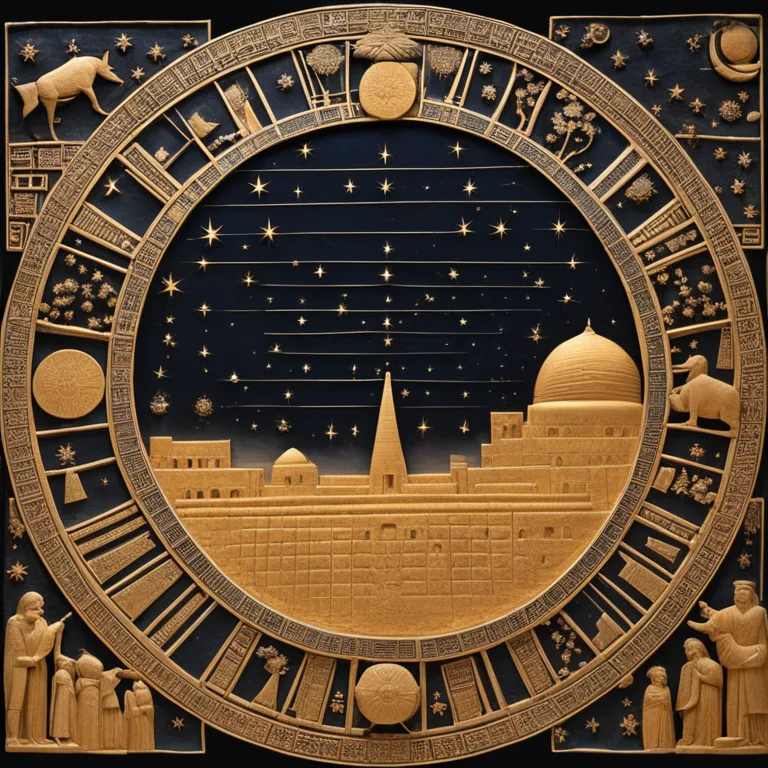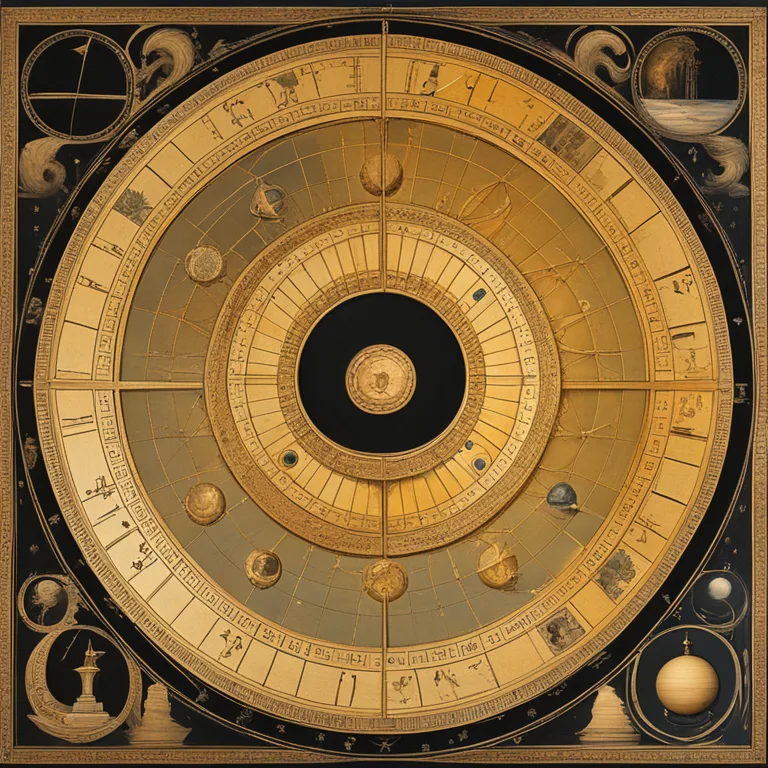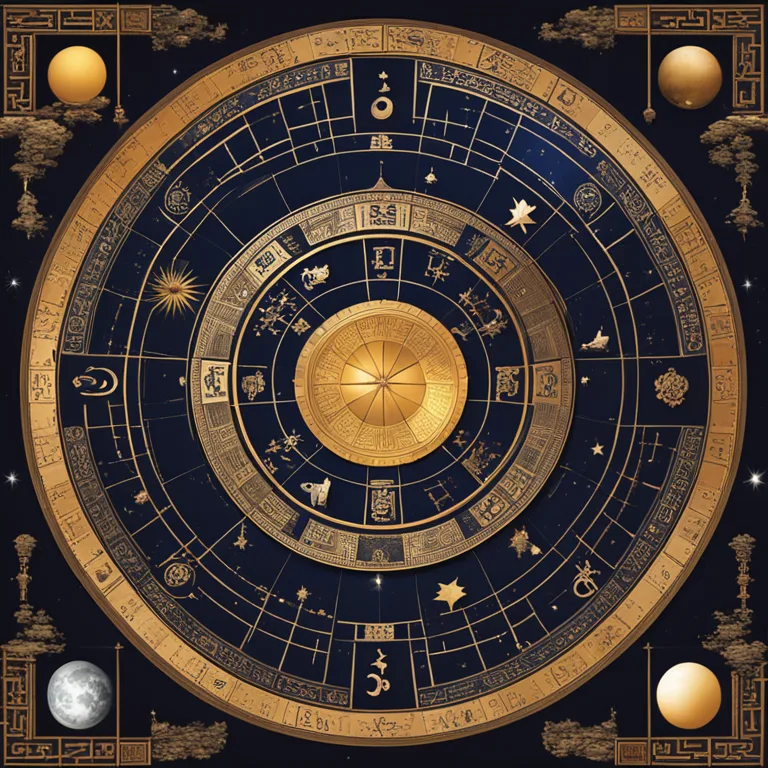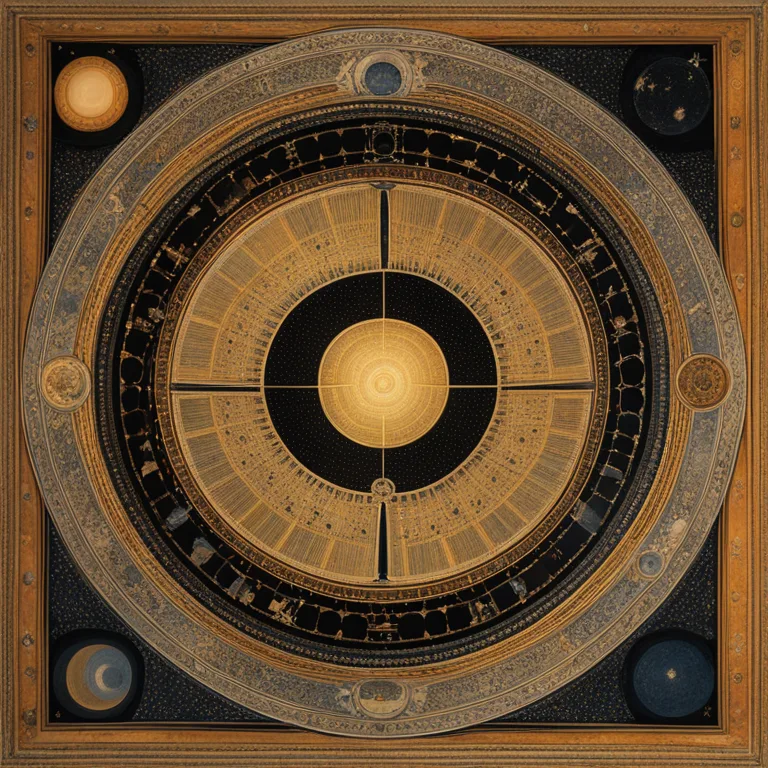
The Origins of Astrology: Historical Overview
Delve into the ancient beginnings of astrology and discover how this celestial art form was conceived, shaping human belief systems throughout history.
article by Priya Deshmukh
A Celestial Dawn
The story of astrology's creation is an odyssey that traverses through the tapestry of human history. In the ancient skies, our ancestors saw more than just stars—they identified patterns, crafted narratives, and sought meaning in the celestial ballet. The need to comprehend the vast unknown led to the observation of celestial bodies and their cycles, planting the seed for what would become astrology. This ancient practice happens to be one of humanity's earliest attempts to make sense of the cosmos in relation to human life and events on Earth.

Astral Impressions in Antiquity
Astrology has roots that extend back to the 3rd millennium BCE, prominently within the civilizations of Mesopotamia. It was the Babylonians who are credited with the formation of astrology as we recognize it. They developed a system where divine communications were believed to be heralded by planetary movements and celestial phenomena. This was a time imbued with spiritual import, attributing to celestial events a deep influence over terrestrial occurrences. The practice of astrology was reserved for the elite and scholarly, who provided readings for kings and rulers.

Hellenistic Harmony and Horoscopes
It was in the Hellenistic period after the conquests of Alexander the Great that astrology encountered Greek philosophy and science, and a new synthesis occurred. The concept of the zodiac and horoscopes began to take shape, forming a systematic approach to astrology, forecasting individual fates and fortunes. The horoscope's relevance makes its way even into future forecasts for the years beyond 2024, where the positioning of celestial entities at the time of one’s birth is said to earmark the individual's path.

Spreading Through Civilizations
Astrology's influence spread through major civilizations, including India, China, and the Islamic world, each culture adapting it to their own traditions and knowledge systems. Indian astrology, or 'Jyotish,' blended celestial observation with complex mathematical calculations, while Chinese astrology integrated astrology with their philosophy, including the Yin and Yang and the Five Elements. In the Islamic Golden Age, scholars translated and preserved many ancient astrological texts, enriching the practice with their own observations and innovations.

The Renaissance Rejuvenation
The Renaissance sparked renewed interest in astrology in Europe, often blending it with emerging scientific thought. Astrology enjoyed patronage from the church and nobility. Astrological charts were cast for new enterprises, battles, and even to choose the most auspicious times for events. Despite the eventual rift between astrology and the developing standards of the scientific method, astrology's psychological dimension continued to fascinate the human imagination.
Astrology in the Modern Psyche
As astrology enters the era of 2024 and beyond, it manifests as a cultural artifact that resonates with the personal and spiritual domains of life. Astrological forecasts have evolved, reflecting the spirit of the times - acknowledging personality traits, potential life courses, and compatibility between individuals. The resurgence of interest in metaphysical studies empowers astrology to endure as a tool for reflection and self-discovery, despite skeptical scientific scrutiny.
Published: 12/29/2023
Modified: 12/29/2023
More predictions
Come back here soon to learn more about yourself and your future


Astrology: Tracing Its Linguistic Heritage
Dive into the linguistic origins of astrology, unraveling the etymology and historical context of this ancient practice.


Your Astrological House Journey
Discover which astrological house you belong to and learn how it shapes your personality, life path, and experiences in the cosmic realm.


Astrological Sign Compatibility Guide
Discover which star signs align for friendship, love, and understanding in our concise compatibility guide.